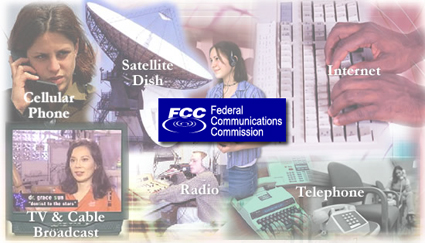
There’s something very interesting going on in the net neutrality wars outside the hallowed halls of our legislature. Internet or “over-the-top” companies are not sitting still waiting for broadband providers to shut them down when consumers start over-consuming in the bandwidth department. Instead they’re actively courting network operators to make sure their content gets transported effectively over broadband networks. In other words, the net neutrality issue has already moved far outside our legislative process. It’s being negotiated in the halls of business.
Wired noted that the FCC is currently conducting an inquiry into whether broadband regulation is needed. Unfortunately, the deadline to submit comments was June 15th, but you can still reply to comments until July 16th.
Ars Technica suggested sending in a comment if you know of examples of “broadband providers charg[ing] upstream providers for priority access to end-users.” I don’t have any proof in that area, but I do have two examples worth citing where it’s clear business discussions are in the works:
- Regarding the selection of former Cisco executive Mike Volpi to lead online video company Joost, In-Stat analyst Gerry Kaufhold suggested that the choice was “more significant than most people realize.” He went on to comment:
“To make P2P really work, they’re going to have to get buy-in from broadband operators,” he says. “If you’re Comcast and have a hundred thousand people sharing Joost bits up and down your network, you’re going to be impacted. I think Joost wants to be a good neighbor — another reason the Volpi appointment is useful. If Joost can find a way to allow those who have made a large investment in last-mile access to participate, I think that makes them an even better service and able to grow faster. If Joost wants to get preferential transport, Mike can call people up and make things happen.”
This quote comes from a recent article in ScreenPlays Magazine. (Italics my own)
- At a recent conference on Cable IPTV (coincidentally also hosted by ScreenPlays Magazine), Sanjay Desai of Brightcove, another online video company used similar language in describing Brightcove’s relationship with broadband providers. He said that partnerships with network operators are critical, precisely because of the bandwidth issue. I believe he also mentioned something about being a “good neighbor”.
This net neutrality thing is starting to get interesting. The question is, just how much of what happens going forward will be visible to the public?
When Volpi was hired, that was exactly my reaction regarding the physical data networks.
Joost as an organization gets it. Hiring Volpi is continued evidence of that.
I’ve done a quick survey and it seems everyone who would make money by regulating net neutrality would regulate net neutrality, and everyone who wouldn’t make money by regulating net neutrality wouldn’t regulate net neutrality.
;)